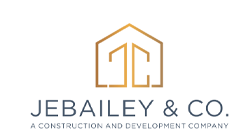At Jebailey and Co., we understand the importance of sustainable construction practices. As the demand for eco-friendly buildings continues to rise, it is imperative for commercial construction companies to embrace green building technologies and materials.
In this comprehensive guide, we will provide you with all the information you need to know about going green with commercial construction.
Why Go Green with Commercial Construction?
Sustainable construction practices not only benefit the environment but also benefit building owners and occupants. By going green, commercial buildings can reduce their energy consumption and lower their carbon footprint, leading to significant cost savings and increased property value. Additionally, green buildings provide a healthier and more comfortable indoor environment for occupants, leading to improved productivity and reduced absenteeism.
Eco-Friendly Building Materials
One of the most critical aspects of sustainable construction is using eco-friendly building materials. These materials are made from renewable resources, have low embodied energy, and have a minimal negative impact on the environment.
Some of the most commonly used eco-friendly building materials in commercial construction include:
- Recycled Steel – Using recycled steel in construction reduces energy consumption by up to 75%. It is also more durable and long-lasting than traditional building materials.
- Bamboo – Bamboo is a rapidly renewable resource that can be harvested in just a few years. It is also incredibly strong and durable, making it an excellent choice for construction.
- Low-VOC Paints – Traditional paints release harmful volatile organic compounds (VOCs) into the air. Low-VOC paints are made from natural ingredients and have a minimal impact on indoor air quality.
Energy-Efficient Building Design
Another critical aspect of sustainable construction is designing buildings that are energy-efficient. This means using design elements that reduce energy consumption, such as:
- Natural Lighting – Incorporating windows and skylights into building design provides natural lighting and reduces the need for artificial lighting.
- Insulation – Proper insulation reduces heat loss and energy consumption.
- Energy-Efficient HVAC Systems – Heating and cooling systems account for a significant portion of a building’s energy consumption. Installing energy-efficient HVAC systems can significantly reduce energy consumption and lower utility costs.
Sustainable Site Selection
Sustainable site selection is another critical aspect of green construction. Choosing a site that is close to public transportation and has access to amenities such as grocery stores, schools, and parks can reduce the need for personal vehicles, leading to reduced carbon emissions. Additionally, selecting a site that has existing infrastructure reduces the need for new construction, leading to a smaller environmental impact.
Green Construction Practices
In addition to using eco-friendly building materials and designing energy-efficient buildings, green construction practices also include:
- Waste Reduction – Minimizing waste during construction reduces the environmental impact and can also lead to cost savings.
- Water Conservation – Implementing water conservation measures, such as low-flow fixtures and rainwater harvesting systems, can significantly reduce water consumption.
- Green Roofing – Green roofs are covered in vegetation and provide insulation, reduce the urban heat island effect, and improve air quality.
Conclusion
In conclusion, going green with commercial construction is not only beneficial for the environment, but it also leads to cost savings and increased property value. By using eco-friendly building materials, designing energy-efficient buildings, selecting sustainable sites, and implementing green construction practices, commercial construction companies can reduce their carbon footprint and lead the way toward a more sustainable future.




